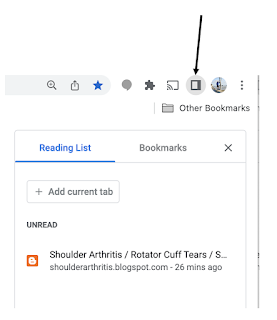The authors of Total Shoulder Arthroplasty: Antibiotic Allergies Increase Risk of Postoperative Complications, call attention to another risk factor: antibiotic allergy. Using the PearlDiver Patient Records Database they identified 85,606 patients having total shoulder arthroplasty for osteoarthritis of which 7,836 (9.15%) had self-reported antibiotic allergies. They documented patient demographics, comorbidities, 90-day medical complications, and rate of revision at 30 days, 90 days, 1 year, and 2 years.
Univariate analysis found that patients reporting antibiotic allergies were younger, more often female, and more likely to have comorbidities than nonallergic control subjects.
Multivariate analysis found that patients reporting antibiotic allergies had increased likelihood of periprosthetic joint infection (PJI) within 30 days (odds ratio [OR]: 3.129), 1 year (OR: 2.016), and 2 years of surgery (OR: 2.221).
Patients reporting antibiotic allergies had increased likelihood of postoperative anemia (OR: 1.126), blood transfusion (OR: 1.238), and readmission (OR: 1.585) within 90 days of surgery.
Patients with penicillin allergy had a greater incidence of revision due to PJI at 30 days (OR: 4.811), 90 days (OR: 2.91), 1 year (OR: 2.105), and 2 years (OR: 2.72).
Rates of reported antibiotic allergies increased from 2010 to 2018 (8.60% to 10.91%; P = 0.001) in patients undergoing TSA.
Comment: While the reason for the increased rate of periprosthetic infection and other complications in patients with "self-reported" (rather than documented) antibiotic allergies is unclear, some hypotheses come to mind:
(1) "self-reported" antibiotic allergies may lead surgeons to use antibiotics other than cephalosporins, which are maximally effective in preventing periprosthetic infections (see What antibiotic prophylaxis should be used against shoulder periprosthetic infection?) This problem is addressed in When is it safe to give cephalosporin antibiotic prophylaxis to patients who are "allergic to penicillin"?
(2) patients reporting antibiotic allergies are more likely to have an altered bacterial biome as a result of prior antibiotic treatment and are more likely to have had an infection treated with antibiotics - both of which factors may increase their risk of another infection.
(3) self-reporting of antibiotic allergies is associated with an increased rate of many co-morbidities, each of which could increase the risk of periprosthetic infection and other complications.

The conclusion is that patients with "self-reported" antibiotic allergies are at greater risk for infections and other complications, whether or not there was an actually demonstrated allergy. Patients reporting antibiotic allergies deserve extra preoperative, intraoperative and postoperative attention to minimize these risks.
You can support cutting edge shoulder research that is leading to better care for patients with shoulder problems, click on this link.
To add this blog to your reading list in Google Chrome, click on the reading list icon

Follow on twitter: https://twitter.com/shoulderarth
Follow on facebook: click on this link
Follow on facebook: https://www.facebook.com/frederick.matsen
Follow on LinkedIn: https://www.linkedin.com/in/rick-matsen-88b1a8133/
Here are some videos that are of shoulder interest
Shoulder arthritis - what you need to know (see this link).
How to x-ray the shoulder (see this link).
The ream and run procedure (see this link).
The total shoulder arthroplasty (see this link).
The cuff tear arthropathy arthroplasty (see this link).
The reverse total shoulder arthroplasty (see this link).
The smooth and move procedure for irreparable rotator cuff tears (see this link).
Shoulder rehabilitation exercises (see this link).
